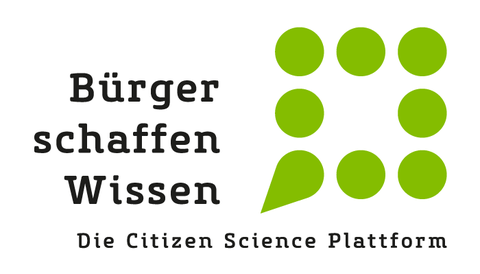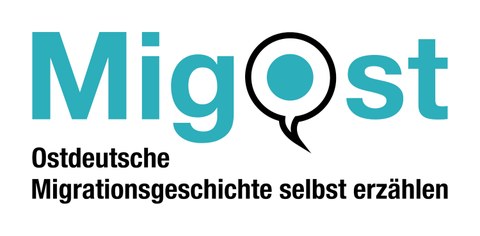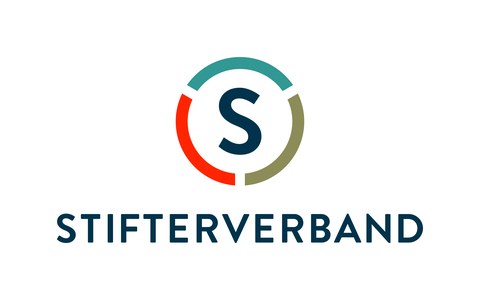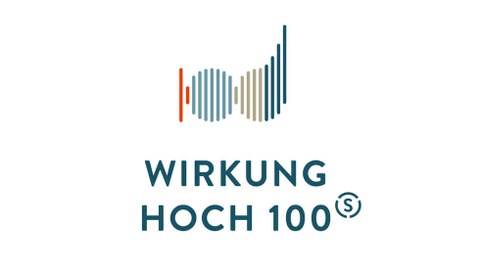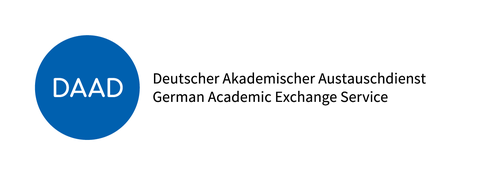Dr.in Karoline Oehme-Jüngling
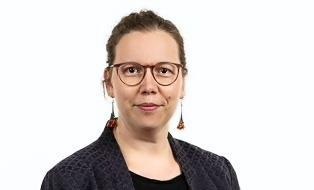 © TUD I Michael Kretzschmar
© TUD I Michael Kretzschmar
Wissenschaftliche Koordinatorin
NameFrau Dr.in Karoline Oehme-Jüngling
Schwerpunkt: Wissenschaftsmanagement, Wissenschaftskommunikation
Eine verschlüsselte E-Mail über das SecureMail-Portal versenden (nur für TUD-externe Personen).
Besuchsadresse:
Seminargebäude 1, Raum SE-1, 13 Zellescher Weg 22
01217 Dresden
- Seit 1/2021 Wissenschaftliche Koordinatorin am Disruption and Societal Change Center (TUDiSC) der TU Dresden
- Seit 09/2016 Wissenschaftliche Koordinatorin am Zentrum für Integrationsstudien der TU Dresden
- 08/2006 – 07/2016 Lehrbeauftragte im Studiengang Kulturanthropologie an der Universität Basel
- 01/2007 – 08/2016 Leiterin des Schweizerischen Volksliedarchivs Basel
- 12/2012 – 03/2016 Wissenschaftliche Mitarbeiterin am Seminar für Kulturwissenschaft und Europäische Ethnologie an der Universität Basel (SNF-Sinergia-Projekt: Broadcasting Swissness – Musical Practices, Institutional Contexts, and the Reception of Traditional Popular Music: The Acoustic Construction of Swissness on the Radio)
- 04/2014 – 05/2016 Leiterin des Wissenschaftsvermittlungsprojekts Communicating Music Research (gemeinsam mit Prof. Dr. Walter Leimgruber)
- Sommersemester 2014 Gastdozentin an der Riga Stradiņš University und der University of Latvia
- 03/2013 Promotion zur Doktorin der Philosophie an der Universität Basel
- 01/2009 – 01/2013 Wissenschaftliche Assistentin am Seminar für Kulturwissenschaft und Europäische Ethnologie der Universität Basel
- 06/2006 – 05/2009 Wissenschaftliche Mitarbeiterin am Seminar für Kulturwissenschaft und Europäische Ethnologie an der Universität Basel (SNF-Projekt: Kultur und Politik: Volkskultur zwischen Wissenschaft, kultureller Praxis und (kultur)politischer Förderung
- 09/2001 – 03/2006 Magister an der Otto-Friedrich-Universität Bamberg (Fächer Ethnomusikologie, Musikpädagogik, Evangelische Theologie)
- 07/2000 Abitur am St. Benno Gymnasium Dresden
- Wissenschaftsmanagement: Konzeption und Akquise von Drittmittelprojekten in den Bereichen Integrationsforschung und Praxistransfer, Disruptionsforschung, Koordination der laufenden Verwaltung
- Wissenschaftskommunikation und Öffentliche Wissenschaft: Vernetzung von Wissenschaftler/innen der interdisziplinären Integrationsforschung, Kontakt zu Akteuren aus Politik und Praxis, Öffentlichkeitsarbeit des ZfI, Zusammenarbeit mit zivilgesellschaftlichen Organisationen
Aktuelle Projekte
Laufzeit: 1.3.2021-29.2.2024
Projektleitung: Dr. Karoline Oehme-Jüngling
Projektmitarbeit: Luise Böhm, Paolo Le van, Franca de Graaf
Verbundpartner: Dachverband Migrant*innenorganisationen in Ostdeutschland Halle (Saale) (DaMOst), Brandenburgische Technische Universität Cottbus (BTU), Institut für Sächsische Geschichte und Volkskunde Dresden e.V. (ISGV), Deutsches Zentrum für Integrations- und Migrationsforschung Berlin (DEZIM)
Förderung: Das Projekt wird im Rahmen des BMBF Förderbereichs Bürgerforschung vom Bundesministerium für Bildung und Forschung gefördert. Es gehört zu 15 Projekten, die bis Ende 2024 die Zusammenarbeit von Bürgerinnen und Bürgern und Wissenschaftlerinnen und Wissenschaftlern inhaltlich und methodisch voranbringen und Antworten auf gesellschaftliche Herausforderungen geben sollen. Weitere Informationen unter:
https://www.bmbf.de/de/buergerforschung-225.html https://www.buergerschaffenwissen.de/
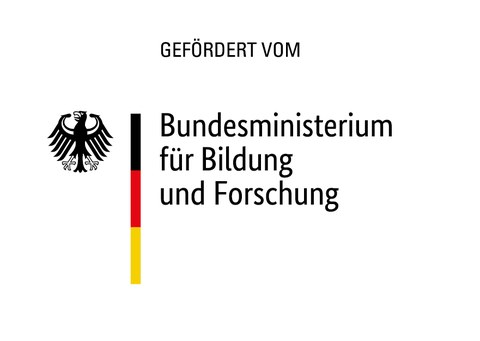
Bundesministerium für Bildung und Forschung
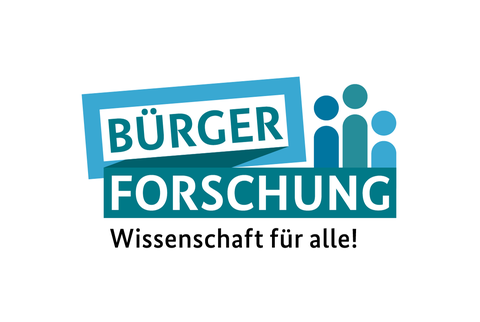
Bürgerforschung
MigOst macht lebensgeschichtliche Erzählungen von Menschen mit Migrationsgeschichte in Ostdeutschland sichtbar. Ziel des Projekts ist es, gemeinsam mit Bürger*innen eine Auseinandersetzung mit Migration und migrationsbezogenen Erfahrungen in Ostdeutschland zu initiieren und partizipativ zu reflektieren. Denn obwohl auch die DDR und Ostdeutschland eine kontinuierliche Geschichte der Migration haben, werden migrantische Perspektiven auf Vergangenheit und Gegenwart bisher marginalisiert. Aus einer Alltagsperspektive sollen Wissen und Erfahrungen von Menschen mit Migrationsgeschichte zu Zeiten der DDR, der Wiedervereinigung bis in die Gegenwart in der Vielstimmigkeit der Erzählenden thematisiert werden. Dabei können Fragen nach Identität und Zugehörigkeit, nach Praxis und Erfahrung des Ankommens, Bleibens und Gehens sowie nach Diskriminierung und Rassismus eine Rolle spielen.
Wie können Bürger*innen mitforschen?
Im Projekt sind drei regelmäßig stattfindende Geschichtswerkstätten in Cottbus, Dresden und Halle geplant, in denen mit verschiedenen Methoden der Gruppendiskussion gearbeitet wird. Dazu eingeladen sind Menschen mit Migrationsgeschichte in Ostdeutschland (Phase 1) und Menschen, die als Arbeitskolleg*innen, Nachbar*innen oder Freund*innen in Ostdeutschland migrationsbezogene Erfahrungen gemacht haben (Phase 2). Die Geschichtswerkstätten werden gemeinsam von migrantischen Organisationen und dem Projektteam entwickelt und durchgeführt. Teilnehmer*innen benötigen außer Interesse am Thema keine weiteren Voraussetzungen. Die Teilnehmer*innen entscheiden als Expert*innen ihrer eigenen Geschichte selbst über die Themensetzung; das Projektteam unterstützt mit methodischer wie theoretischer Expertise.
Sie möchten mitmachen? Dann schreiben Sie uns: migost@damost.de
Wozu trägt die Forschung bei?
Hegemoniale Erinnerungsdiskurse zur ostdeutschen Geschichte weisen in Blickrichtung und gesellschaftlicher Positionierung große Lücken auf: So wird die DDR-Gesellschaft vielfach homogen und weiß imaginiert. Die Biografien etwa von Vertragsarbeiter*innen oder Teilnehmer*innen internationaler Bildungsprogramme, individuelle Migrationserfahrungen in der DDR wie auch migrantisches Wissen der Wende- und Nachwendezeit erfahren wenig öffentliche Aufmerksamkeit. Hinzu kommt, dass die deutsche Migrationsgeschichte in der Forschung meist anhand der westdeutschen Einwanderungsgesellschaft erzählt wird. In der Sozialwissenschaft ist somit eine doppelte Differenzierung und Marginalisierung zu beobachten. In Realität hat die ostdeutsche Gesellschaft selbstverständlich eine fortwährende Historie der Einwanderung. Durch den Blick zurück und das Teilen migrationsbezogener Erfahrungen werden bisherige Ausschlüsse in der Erinnerungskultur sowie dominante Narrative über Ostdeutschland in Frage gestellt.
Laufzeit: 1.1.2021-31.12.2022
Projektleitung: Dr. Karoline Oehme-Jüngling (Wissenschaftliche Koordinatorin, Zentrum für Integrationsstudien), Dr. Julia Schulze Wessel (Geschäftsführerin, anDemos - Institut für angewandte Demokratie- und Sozialforschung e.V.), Dr. Oliviero Angeli (Wissenschaftlicher Koordinator, MIDEM), Prof. Dr. Michael Kobel (Professor Teilchenphysik, ehrenamtlicher Leiter der AG Arbeit und Ausbildung für Geflüchtete im Netzwerk Willkommen in Löbtau e.V. und Vorstandsmitglied Sächsischer Flüchtlingsrat e.V.)
Projektmitarbeit: Steve Bittner (M.A.)
Kooperationen: Kulturbüro Sachsen e.V. (Grit Hanneforth), Richters Buchhandlung (Christine Polak)
Förderung: Gefördert vom Bundesministerium für Bildung und Forschung (BMBF) und dem Freistaat Sachsen im Rahmen der Exzellenzstrategie von Bund und Ländern
Gesellschaft im Dialog ist die Forsetzung der Veranstaltungsreihe "Vielfalt im Dialog" aus dem Jahr 2020 als Teil von TU Dresden im Dialog - Transferaktivitäten im Rahmen der Exzellenzstrategie der TU Dresden.
Unter dem Titel "Vielfalt im Dialog" startete im Herbst 2020 eine Veranstaltungsreihe an der TU Dresden, die mit verschiedenen zivilgesellschaftlichen Kooperationspartner*innen über Themen der Migration, Integration und Rassismus mit einer breiten sächsischen Öffentlichkeit ins Gespräch gekommen ist. In unterschiedlichen Formaten wie einem Kunstworkshop, Lesungen und Podiumsdiskussionen wurden vor dem Hintergrund aktueller Forschungserkenntnisse und Praxiserfahrungen neue Perspektiven auf Themen der Migrationsgesellschaft gemeinsam entwickelt und diskutiert. Diese Veranstaltungsreihe wird in diesem Jahr unter dem Titel "Gesellschaft im Dialog" fortgeführt.
Programm & weitere Infos
... finden Sie auf unserer Projektwebsite.
Laufzeit:
1.11.2020-31.12.2021 (Förderphase 1)
Ab 1.1.2022 (Förderphase 2)
Projektleitung:
Dr. Karoline Oehme-Jüngling (Zentrum für Integrationsstudien), Anke Börsel und Julia Welchering (beide ehemals Erweiterungsfach DaZ)
Förderung: Stifterverband für die deutsche Wissenschaft
digiDaz:Pro ist ein Entwicklungsprojekt der TU Dresden, das im Zuge des Ausbaus des recht jungen Studiengangs Deutsch als Zweitsprache (DaZ) den Herausforderungen eines veränderten Lehr- und Lernalltags zu Corona-Zeiten mit digitalen Tools begegnet. Um die Teilhabe aller Schüler:innen, besonders mit DaZ, auch unter Pandemie-Bedingungen und mit stark verringertem Zugang zu interaktiven Sprachlern-Angeboten zu verbessern, werden digitale Lehr-Lern-Tools entwickelt. Sie sind konzeptionell und systematisch in die anwendende Zielgruppe (Lehrer:innen, Studierende, Schüler:innen) im Bereich DaZ integriert und so fach- und phasenintegrierend wirksam.
Als kooperatives Projekt mit lokalen und überregionalen Partner:innen wirkt es an der Schnittstelle von Bildung und Wissenschaft, indem es die Expertise von Akteur:innen im System Schule mit wissenschaftlich basierten Erkenntnissen unter Nutzung der universitären wissenschaftlichen Infrastruktur bündelt.
Laufzeit: 01.01.2016-31.12.2023
Projektkoordination: Dr. Karoline Oehme-Jüngling (Zentrum für Integrationsstudien, TU Dresden)
Förderung: Deutscher Akademischer Auslandsdienst (Programm: Welcome - Studierende engagieren sich für Geflüchtete)
Das DAAD Programm „Welcome – Studierende engagieren sich für Geflüchtete“ wurde 2016 ins Leben gerufen und fördert seitdem studentische Initiativen, die sich an deutschen Hochschulen für die Integration von Geflüchteten einsetzen.
Gefördert von
Ziel von IDA ist die Vermittlung und Koordination freiwilliger Hilfsangebote von Studierenden für Geflüchtete sowie die Entwicklung von Strukturen, welche zur Integration Geflüchteter beitragen, bzw. zum interkulturellen Austausch zwischen Geflüchteten und Studierenden im Besonderen und zwischen Geflüchteten und allen Dresdnern im Allgemeinen. Zur Erfüllung ihrer Aufgaben arbeitet IDA mit anderen Organisationen zusammen, die sich in den Aufgabenfeldern ebenfalls engagieren.
Hervorgegangen aus einer studentischen Gruppe, die von September 2015 bis April 2016 Sprachkurse und ABC-Tische für Geflüchtete in den Erstaufnahmeeinrichtungen auf dem Gelände der TUD organsierte, arbeitet IDA heute in vier zentralen Aufgabenfeldern.
1. Organisation von Angeboten zum Erlernen der deutschen Sprache mit freiwilligen Lehrer*innen
2. Sprachkurse von Geflüchteten für Studierende
3. Patenschaftsprogramm für geflüchtete Studierende und Interessierte
4. Politische Bildung und Sensibilisierung von Studierenden
Die Initiative "IDA - In Dresden Ankommen" ist Teil des DAAD Programms „Welcome – Studierende engagieren sich für Geflüchtete“, welches Studentische Initiativen unterstützt, die sich an deutschen Hochschulen für die Integration von Geflüchteten einsetzen.
Laufzeit: 01.01.2016-31.12.2023
Projektkoordination: Dr. Karoline Oehme-Jüngling (Zentrum für Integrationsstudien, TU Dresden)
Förderung: Deutscher Akademischer Auslandsdienst (Programm: Welcome - Studierende engagieren sich für Geflüchtete)
Das DAAD Programm „Welcome – Studierende engagieren sich für Geflüchtete“ wurde 2016 ins Leben gerufen und fördert seitdem studentische Initiativen, die sich an deutschen Hochschulen für die Integration von Geflüchteten einsetzen.
Gefördert von
Die Refugee Law Clinic Dresden bildet Studierende zu ehrenamtlichen, studentischen Rechtberater*innen aus und führt eine Beratungsstelle für Geflüchtete an drei Standorten in Dresden.
Die Refugee Law Clinic Dresden ist Teil des DAAD Programms „Welcome – Studierende engagieren sich für Geflüchtete“, welches Studentische Initiativen unterstützt, die sich an deutschen Hochschulen für die Integration von Geflüchteten einsetzen.
